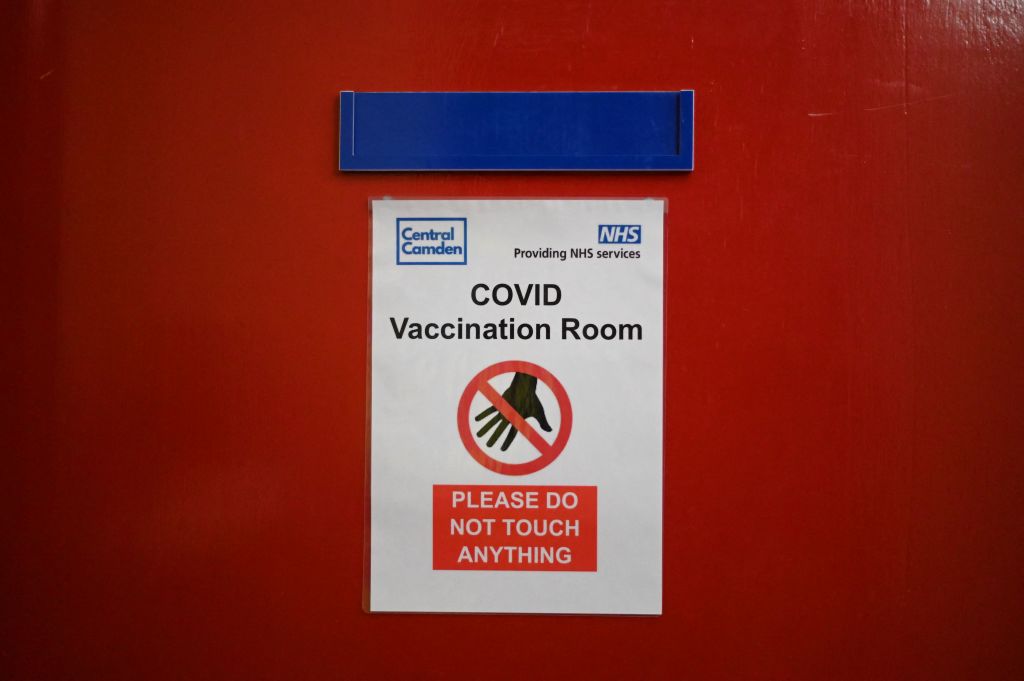There is a myth in football that you are always most susceptible to letting in a goal after you have just scored one. It’s probably not true but the idea is attractive. At the peak of our achievement we are vulnerable to complacency. Is a similar thing happening with the vaccine programme?
The current prevailing narrative is that the declining rates of vaccination are the fault of the under 30s. Government scientists accept that the country is ‘close to maximum take-up’, with many young people still hesitant about vaccination, the Times reported this week. But is that right?
There is probably some truth to the less-than-urgent demand amongst this lower-risk group. But focusing on uptake among young people alone obscures a more obvious issue.
If you look at first and second doses in the UK you can see they have both had a precipitous decline; this is true of first doses in April, and second doses in June. As you would expect, the second dose decline is around 8-12 weeks after the first dose and we will come back to this later.
One of the justifications for delaying reopening last month was to enable more people to be vaccinated and receive second doses, because of rising Delta variant cases. A recent PHE study shows that this was a sensible move: two doses remain effective in preventing symptomatic infection at around a respectable (but slightly reduced) 75 per cent against this variant, which is now responsible for the vast majority of cases in Britain.
Why then are we not speeding through second doses? The last few months have surely demonstrated that we have spare capacity in our vaccination system and there are no reports of supply shortage. Instead it seems that Britain is in a situation where those waiting for their second dose face a patchy interpretation on the rules of when they should be eligible for that booster jab.
When I attended a walk-in vaccination centre recently I watched four people – all of them looking for a second dose of Pfizer and after the licensed period of 21 days (AstraZeneca vaccine is 28 days) – turned away.
The apologetic staff said that a regional edict had been given that nobody was to be given a second dose before the specified time period of 8-12 weeks (depending on their age/risk category); one of those who was sent home was three days before this boundary.
There was no queue, the centre was quiet, but the very patient and lovely staff had been told they were to be audited to ensure compliance with this rule. There were also posters up confirming the exact dates you had to have had the first dose by to receive another jab.
I was involved in the Chadox phase 3 vaccine trial, and because of this I advised on two local vaccination programmes. Generally my experience was that the programme exemplified the concept of swan on surface, furiously paddling below. It was chaotic and changeable on a daily basis, with sudden fluxes in supply, demand and structure. But the aim was clear: we sought to get as many doses into as many people as fast as we can, with some brilliant, hard-working people all pulling in the same direction.
The first part of the vaccine roll-out has been a triumph, but that should not put it beyond constructive criticism. The delay to the second dose was an audacious and successful calculated gamble led by the Joint Committee on Vaccination and Immunisation. But it was there initially to solve the problem of limited supply and a raging second wave. There can be no doubt that it saved lives.
Now, though, we have a different problem: we need to administer as many second doses as possible, as soon as possible. As the easing of restrictions looms, it is difficult to see why we are not just ramping through the second doses, bringing vaccination schedules forward and ensuring those that have already had a single dose are better protected in the short to medium term.
Instead we are stuck with a rigid enforcement of a slightly arbitrary 8-12 week schedule, which risks undercutting the current need to get as many people fully dosed as possible. It would be a shame to see younger people scapegoated (as they have consistently been at various points during the pandemic), when there are plenty of people mostly in their twenties and thirties who are keen to get second doses which they are currently prevented from having.






Comments